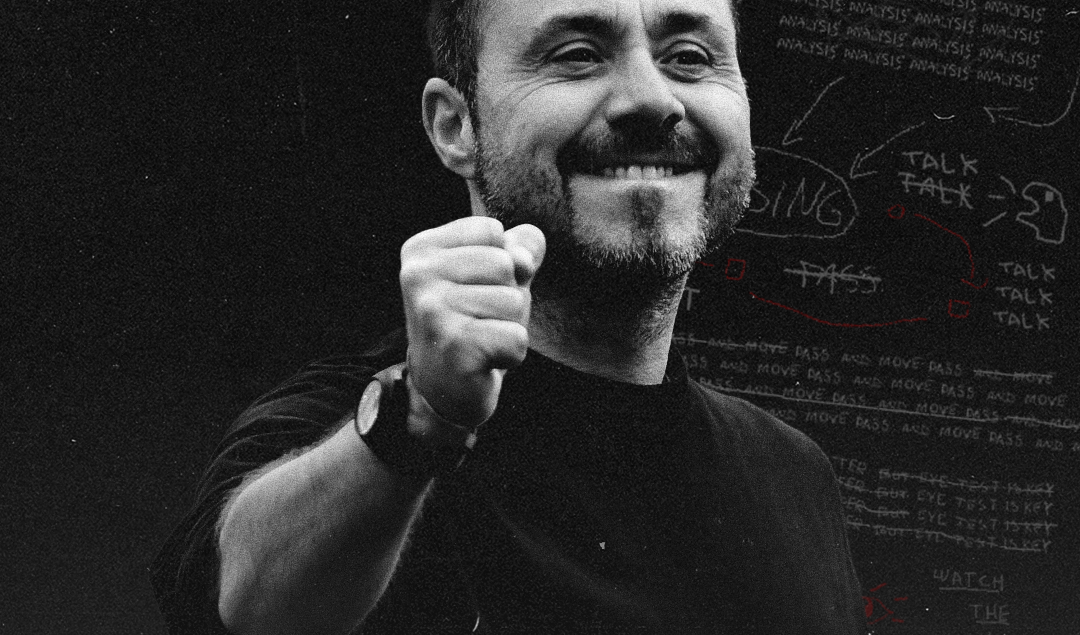From Chaos to Cohesion: How Roberto De Zerbi’s Tactical Principles Are Shaping Marseille’s Identity
At the end of the 2024 season, Roberto De Zerbi left Brighton. After this, only a few would have guessed that he was heading to Marseille next. The semi-famous Italian coach was able to build a glowing reputation in the Premier League. He is known for being a purist with an aggressive commitment to possession.
During De Zerbi’s time at Brighton, the club was playing well and with identity. After moving to Marseille, many had doubts about his ability to manage a club that is historically fuelled by chaos, rebellion, and disarray. Many saw it as a volatile match. Surprisingly, just months into his tenure, De Zerbi has already made progress by reshaping the club into something purposeful.
For years in the league, Marseille has been stuck between eras. There was Jorge Sampaoli with his wild and unpredictable rotations. Then there was Igor Tudor and his rigidity. After this came Gennaro Gattuso’s forgettable interlude. From all of these, none found the right tempo or tone.
Now, under De Zerbi, there is finally a sense of design inside the club. Even the players seem to clearly understand why they are doing what they are doing and when they are doing it. Even the fans can see the idea for the first time. While the results themselves have not been perfect, the direction is correct.
While Marseille’s culture is something unique, other things make this project interesting. It seems like the whole football world, including elite clubs and analysts, is watching closely. Even betting sites with no verification are tracking the trend by actively analyzing and shaping Marseille’s future odds by going through game rhythms, player stats, and in-play metrics.
Right now, the core of De Zerbi’s method remains intact. His strategy is ultra-patient buildup that starts with the goalkeeper luring opposition pressers to create space in midfield. Additionally, he wants the players to use short passing triangles, which are designed to destabilize even the most organized block.
The biggest change when compared to his time at Brighton is regarding the personnel. While Brighton had players like Pascal Groß and Lewis Dunk who were molded through repetition, Marseille has a different challenge. Their team is more unpredictable, more creative, and less focused on the strict patterns that De Zerbi prefers.
As an example, we can use Leonardo Balerdi, who has a rating of 7.26 and a market value of €22.5 million. He was once known for his rash decision-making and inconsistent positioning, but now he is becoming a central figure in De Zerbi’s tactics. This change is not because he has been reinvented, but because he is being trusted.
Similarly, Jordan Veretout, a player who was not the flashiest midfielder, has found himself serving a new purpose for the team by offering safe passes that are designed to allow more creative players to move freely.
In attack, on the other hand, Ismaïla Sarr and Amine Harit have become important weapons of incision. The wingers and other wide players don’t just wait for the ball anymore; they actively move in calculated diagonals, which stretch defenders and offer outlets behind pressure lines.
In recent games, Harit in particular has been running between the lines with that elastic grace, which once made him Schalke’s great hope. While it may seem so, this running isn’t random; it’s part of De Zerbi’s tactics.
What makes this whole project interesting is that the transformation isn’t flashy. There are no immediate 5-0 wins or 70% possession every week. It’s a slower development that is advancing day by day.
This can be seen when analyzing the metrics, which are slowly shifting. Currently, there are more passes per sequence, fewer long balls, and more touches in the middle third. And most importantly, the tone of the club is changing. The anxiety is slowly evaporating, and players are becoming less pressured and more focused.
Still, it’s not perfect—we’re not at the finish line yet. There are gaps between ideas, tactics, and execution, which need to be filled. For example, Marseille has conceded silly goals due to overplaying. They have even lost points in games where they dominated possession because they lacked the final action.
De Zerbi himself has said that this will be his toughest challenge yet, not because of the level of competition, but because of the psychological baggage that comes with the club. The fans, the media, and the ghosts of the past are still haunting the team.
Whether or not trophies follow, De Zerbi’s Marseille already feels different. And sometimes, in a club addicted to noise, identity is the rarest element of all.
